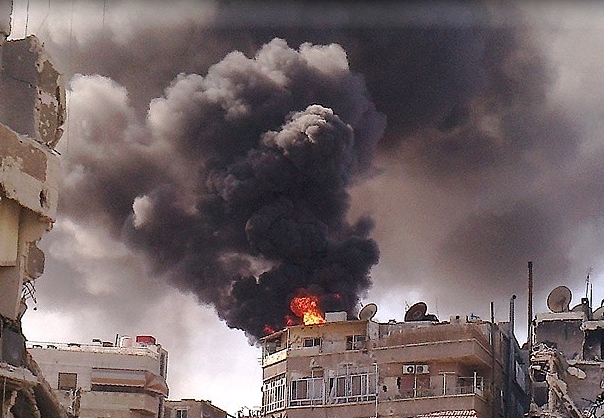By Janet Ekstract
ISTANBUL (TURKISH JOURNAL) – Syria has reached the point of no return in a conflict that continues to displace hundreds of thousands while scores more are either killed or severely injured.
Current reports are that at least a quarter of a million people have fled Idlib since Russia and Syria stepped up airstrikes and shelling in that region.
United Nations Secretary-General Antonio Guterres in an official statement, made it clear that the only way out of the Syrian conflict is for all parties to adhere to a political solution based on UN resolution 2254 (2015).
To that end, The Syrian Constitutional.Committee was formed to work out a new constitutional framework that would take into account all parties in the conflict.
Though initial talks appeared promising, Syria’s opposition abruptly left the talks in the second round.
Since then violence increased in Idlib to the point of no return and has seen scores of Syrians fleeing to the Turkish border.
Secretary-General Guterres stated that he is extremely concerned about the escalation in Idlib and urged all parties to immediately halt attacks.
Meanwhile, U.S. President Trump warned the Syrian regime against the indiscriminate killing of innocent civilians in Idlib.
On Thursday, Trump called for Russia, Syria and Iran to stop the killing. He accused all three nations of complicity while defending Turkey’s role in the conflict.
In the meantime, The World Health Organization (WHO) reported that at least 12 million Syrians need medical assistance. International organization’s have already sounded the alarm about a looming humanitarian crisis.
To compound this, Russia and China were the only UN Security Council members to veto a resolution to renew another year of humanitarian aid to Syria.
U.S. Secretary of State Mike Pompeo condemned the vetoes saying that Russia and China have “blood on their hands. “
WHO reported that the severity of attacks is responsible for 14 dispensaries and two hospitals being shut down. The organization said 42 other healthcare facilities are at risk, if stepped up attacks continue.
Acting Regional Director for WHO in the Eastern Mediterranean, Richard Brennan said: “The recent military tensions in the region have ked to civilian casualties, injuries and intensification of human suffering.”
To resolve the longstanding conflict, the Syrian Constitutional Committee was formed to bring a wide range of Syrians including civil society, international organizations and the opposition together to create a new constitution that would address a broad number of issues.
Since the committee’s second round of talks on November 25, under the auspices of the UN – there has been an indefinite delay.
UN Special Envoy for Syria Geir O. Pedersen told the press that he is scheduled to meet with Syrian President Assad in Damascus and hopes to get the talks back on track.
While Idlib has become the new ‘hotbed’ in the conflict, a new influx of refugees in neighboring Turkey is not sustainable – according to Turkey’s president.
At a recent press conference in Istanbul, Turkish President Erdogan said Turkey can’t handle a new influx of refugees without outside support as it already hosts 3.7 million refugees who are primarily from Syria.
In addition, UN Secretary-General Guterres reported attacks on evacuation routes as civilians try to flee north to safety.
In a formal statement from.the secretary-general’s spokesperson, Guterres said the following: “The secretary-general is urging all parties to remember their obligations to protect civilians and ensure freedom of movement.”
The statement further said: “The secretary-general is calling for sustained, unimpeded and safe humanitarian access to civilians, including through the cross-border modality that must be guaranteed in order to allow the United Nations and its humanitarian partners to continue to carry out their critical work in northern Syria.”
Syria has reached its point of no return.
Analysts and experts on the Middle East agree that negotiation is the only way to resolve this conflict. All eyes will be on Pedersen and his ongoing efforts to bring all parties from.the Syrian Constitutional Committee back to the negotiating table.
As Pedersen had emphasized a month ago, “there is no set timeframe” ‘for the work of the constitutional committee. He made it clear that negotiation is a process.
How the parties move through the process and their willingness to.listen to one another will be the difference between a new constitution for Syria or a more deeply.mired conflict.
The larger question looms: Will the UN override China and Russia’s vetoes on renewing another year of humanitarian aid to Syria?
If the UN resolution to renew aid to Syria is not passed before the deadline of January 10 – the risk.of a major humanitarian crisis is inevitable.
The losers in this conflict are the Syrians who simply want to live in.peace. The Syrian Constitutional Committee will give them this chance.
Now it’s up to Pedersen to bring all parties back for a new round of talks. The future of the Syrian people hangs in the balance and depends on the commitment of the constitutional committee.
No one in this conflict can afford to remain at the point of no return.




